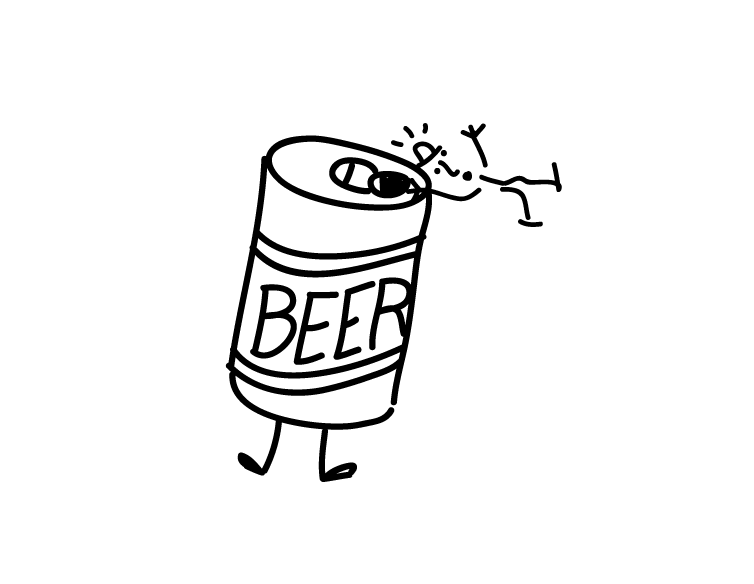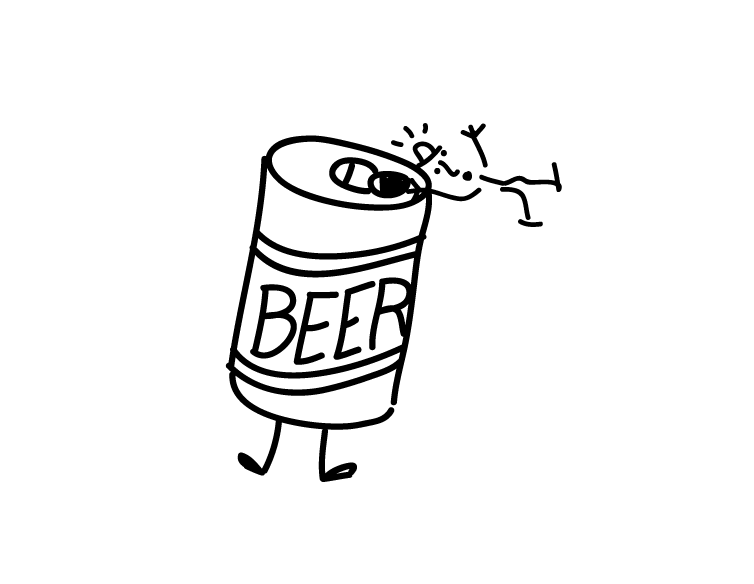Basically
This week, Angela Merkel hosted a deluded First Daughter. Korea went bananas when a deluded father lied. Hollywood fretted a 7th writers' strike. Heineken landed the lay-up Pepsi so missed. United begged forgiveness with gobs of cash. Apple traded Genius Bars for Genius Groves. And Ja Rule's Fyre Fest was only fire to the extent that it burned. Bad.
Verbatim
Even the best visions of the future come to pass slightly askew. In “What cyberpunk was and what it will be” at Kill Screen, Darran Anderson traces the history of a genre whose noir-soaked view of the future city dystopia may seem outmoded, but was never entirely wrong. What might post-cyberpunk look like, and what can we still learn from all that neon and leather?
We were so enticed by the once-edgy cyberpunk look in the ‘80s and ‘90s that we often failed to anticipate that, for all its miseries, things in the future would work, that its evils would be concealed in a shiny green aspirational environment; where tyrannies are enacted as often by omission as active repression; where corporations do indeed wield devastating powers but they also have formidable PR and people want the junk they’re selling. In a sense, we shouldn’t have been surprised; the era of film noir was, after all, also the great era of the musical.

Things
This week in outliving your meme: how did the hunt for Joseph Kony end up? Well, it’s officially done. Kony’s holed up somewhere in Sudanese no-man’s-land with his tiny remaining army splintered into factions, and the Uganda and US-led international taskforce has officially wrapped it all up with a who-cares shrug. David Gauvey Herbert provides an on-the-ground wrap of a weird, brutal decade in which the hunt became “less about a war criminal and more about an adventure mystery in the tradition of El Dorado. Kony is everywhere, but more importantly, he is nowhere. The hunt is a performative space, a void into which his pursuers can insert themselves.”
In the dance of gentrification, we all know our pre-determined moves far too well. Benjamen Walker takes a hard look at the role artists and their neighbourhoods play in reshaping cities, both as colonizers and as pawns of capital, and wonders what resistance to this might look like. Featuring one of the Whitney standouts this year, Maya Stovall’s Detroit liquor store dance interventions – a community-minded, fun rejection of ruin porn tropes in her home city.
Two years ago, Harvard prof Jill Lepore wrote a most-choice article on the quest to back-up the internet. Here she is again in an interview with Public Books on the relationship between technology and progress. “Do you know why we have breast pumps in the United States? Because we don’t have maternity leave. Pumps are a very cheap and crappy substitute.”
Related: the online trade in mother’s milk is beginning to boom, with new websites and co-ops springing up at increasing pace. So say hello to an influx of competing interests, profiteers, regulators and ethicists, none of whom have easy answers for how to find the right balance of ethics, safety and public good.
Taboola and Outbrain, two terrible companies whose business model binds otherwise perfectly good sites to a Faustian pact of junk funnelling in exchange for their soul are in merger talks. The chum singularity is upon us!
Something worth celebrating, whenever the opportunity arises: the good old-fashioned shoe-leather / pilates-mat journalism that took down Bill O’Reilly. Patience, trust, building a space for victims to speak safely. Wild concepts.
Calico, Larry Page’s attempt to target the Alphabet billions at the “disease” of aging, has been mighty quiet in terms of actual output. As Maria Belluz argues, applying the secrecy and speculation cycles of startup culture to health research runs counter to everything modern science is working so hard to become better at – sharing, transparency and a sense of collective purpose. What are the stakes when Google charges headlong into an industry it doesn’t understand and refuses to collaborate? Consider what happened all the way back with their first moonshot, and how revolutionary Google Books might have been if they’d actually worked openly with industry.
China may have “Ivanka Fever,” but North Americans are just as vulnerable to celebrity-political neo-royalty. Ivanka isn’t the first First Family member to stand in for a leader’s humanity. Over the years of their rule, the friendly First Family come to represent hope that the leader’s humanity will be rekindled. But this hollows out these public figures, transforming them into ideal vessels for the modern campaign. So we’re saying this now because we wish J.T. and G.W. had received the same advice: Ivanka and Chelsea, it’s icky—please stop it.
Family ties are antithetical to democracy, but family-run athleisure empires are probably fair game. Kit and Ace, launched by the wife and son of Lululemon’s founder Chip Wilson, is now “shifting strategies,” closing all stores outside Canada. That may appear like an admission of defeat, but who really knows in today’s retail industry? Maybe they’ve learned something about exclusivity from private brand Instagram accounts. Kit and Ace might be flexing its private-company advantage, making a stealthy play toward false Canada-only scarcity.
We said enough nice things about The New Inquiry’s relaunch last week that we were hesitant to link to the White Collar Crime Map this time round. But it’s just too good. It’s also a great opportunity to link to co-creator Francis Tseng’s depressingly funny “dystopian business simulator” The Founder. Have fun bootstrapping those disruptive dreams!
Oh, and 👌 is still 👌, and the trolls can't take it from us.
Be an influencer — go ahead and tell your friends you’re trapped on an island with only cheese sandwiches and our email for sustenance.





